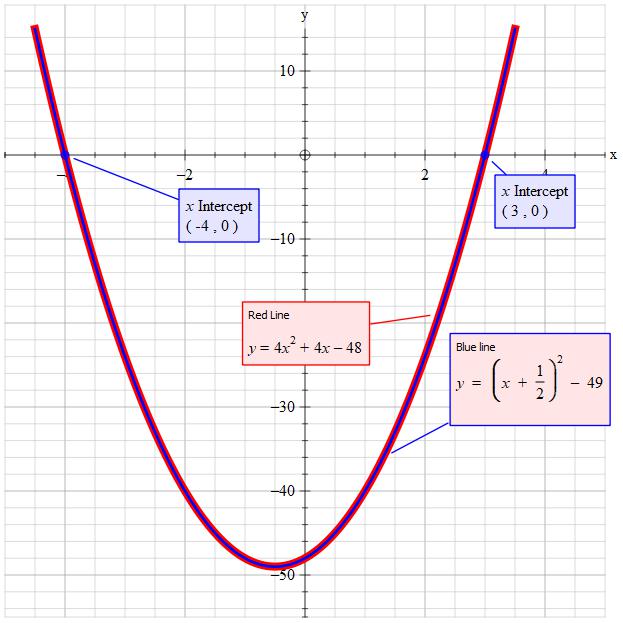How do you solve using the completing the square method #4x^2 + 4x + 1 = 49 #?
3 Answers
Explanation:
or
and using
or
and either
or
3, and - 4
Explanation:
- Transforming Method
#y = 4x^2 + 4x - 48 = 0#
#y = 4(x^2 + x - 12) = 0#
Solve the quadratic equation#x^2 + x - 12 = 0# , by the new Transforming Method - case a = 1 (Socratic, Google Search)
Find 2 real roots, that have opposite signs (ac < 0), knowing the sum (-b = -1) and the product (c = -12).
They are 3 and - 4 - Completing the square method.
#4x^2 + 4x = 48#
#x^2 + x = 12#
#x^2 + x + 1/4 = 12 + 1/4 = 49/4#
#(x + 1/2)^2 = 49/4#
#x + 1/2 = +- 7/2#
#x1 = 7/2 - 1/2 = 6/2 = 3#
#x2 = - 7/2 - 1/2 = - 8/2 = - 4#
Explanation:
Given:
Write as:
The next step will change things in as much as it introduces a value that is not in the original equation. It is removed by introducing an as yet unknown constant of
Notice the exponent
Now we do the correction bit.
Set
Substitute into
~~~~~~~~~~~~~~~~~~~~~~~~~~~~~~~~~~~
Add 49 to both sides
Divide both sides by 4
Square root both sides
Subtract



